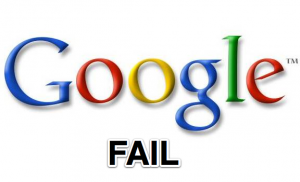As we all know, back-links are a critical factor of search engine ranking algorithms. Getting more incoming links from better sources is a sure-fire method for improving a site’s position in SERPs. With the coming of Google’s Penguin algorithm update, techniques that seek to build links in ways that look unnatural are being penalized. Google wants its rankings to reflect the needs and interests of its users, and those sites that are employing shady link-building techniques are thought -reasonably- to be less likely to meet that aim. With that in mind, here are three ways that webmasters and site owners can generate backlinks that aren’t going to ring alarm bells in Mountain View.
Author Archives: Daniel Page
Five Best Practices to Avoid A LinkedIn-Style Password Embarrassment
There’s nothing more embarrassing for a web-based company than allowing their user’s personal data to be revealed on the open Internet. Websites and services have an ethical duty to protect the private data entrusted to them, and yet, time and again, we hear of hugely popular web services like LinkedIn and Last.fm engaged in password practices that are very definitely not the best.
On top of the ethical duty, there are significant costs associated with lax security, including danger to business continuity, loss of reputation, and legal consequences for failure to adhere to data protection regulations.
Top Five Reasons Your Website’s Visitors Bounce
Matt Cutts‘ recent confirmation that Google don’t use bounce rate as a signal for search engine ranking will be of cold comfort to website owners who are confounded by their visitors’ refusal to stick around.
A site’s bounce rate is the percentage of visitors that leave the site from the page on which they arrived without interacting or following navigation. Sites with a high bounce rate are falling at the first hurdle, and it can often be difficult to determine exactly which factors are repelling users. Today we’re going to have a look at the five most likely reasons that your site is failing to engage people.
Improve your CTR with Rich Snippets
Improve your CTR with Rich Snippets
Historically, the meaning of web content has been largely unfathomable to search engines, which indexed fairly clumsy indicators of content like keywords to get a sense of what a web page is about. Semantic markup, however, allows search engines to have some understanding of what certain parts of a page’s content refers to and include that information in the text that they display below the links on SERPS (known as snippets).
Are Slow Load-Times Killing Your Conversion Rate – Part 2: Top Ten Ways To Improve Site Speed
Top Ten Ways To Improve Site Speed
As we saw in Part One of our series on website optimization, a slow site can seriously impact user experience. Anything over 3 seconds is going to be an irritation to users, and irritated users lead to lost sales, reduced conversions, and higher bounce rates. As an example, figures released by Walmart show that increased load times are significantly correlated with lowered conversion rates, with a precipitous drop as load times increase between one and three seconds.
Slow load times can also have an effect on SERP results. Google use site speed as one of their signals for determining ranking. It has a much smaller effect than relevant content, but any decent SEO will tell you that, all else being equal, a quicker loading site can give you a bump compared to competitors.
With that in mind, we’re going to take a look at 10 best practices that website owners can implement on their sites to make sure that their users have the best possible experience.
Are Slow Load Times Killing Your Sales (6 Infographics)
Are Slow Load-Times Killing Your Conversion Rate – Part One: 6 Best Infographics
We’ve all felt that sense of irritation when we click on a link and have to wait while a slow page loads its dozens of unoptimized images and embedded widgets and analytics scripts, fetching components spread across servers in disparate locations and incurring significant extra round-trip lag. Today, we’re going to have a look a 6 of the best infographics on the subject, and next week we’ll show you the top 10 causes of slow web pages and what you can do to fix them.
1) Instant America by Mashable
Americans expect prompt service, we don’t like to wait for waiters and sales staff, and we find waiting for websites especially galling, as this infographic from Mashable neatly demonstrates.
Yahoo! Introduces New Website Marketing Tools
 In recent months Yahoo have been hitting the headlines more for their boardroom drama and patent trolling than their innovations and services. But with the recent introduction of the Yahoo! Marketing Dashboard, they have created a product that many small and medium businesses and startups who lack the resources to invest in more pricey web site analytics should definitely take a look at.
In recent months Yahoo have been hitting the headlines more for their boardroom drama and patent trolling than their innovations and services. But with the recent introduction of the Yahoo! Marketing Dashboard, they have created a product that many small and medium businesses and startups who lack the resources to invest in more pricey web site analytics should definitely take a look at.
Yahoo! already offer a host of services for small businesses, including Yahoo! Finance and Mail. With the Marketing Dashboard they aim to provide a way for businesses to track the effectiveness of their marketing campaigns and discover new opportunities for growth.
Google’s Big Mistake with Parked Domains
 There is not a site owner in the whole World Wide Web that isn’t concerned about how their website is ranked on Google. Recently, you may have noticed that your site’s ranking has dipped. If you’re thinking it is due to Google’s announced over-optimization penalty, you might want to think again.
There is not a site owner in the whole World Wide Web that isn’t concerned about how their website is ranked on Google. Recently, you may have noticed that your site’s ranking has dipped. If you’re thinking it is due to Google’s announced over-optimization penalty, you might want to think again.
There’s been a lot of buzz on search forums and even Google’s discussion board about these drops. The whispers of the new upcoming penalty are getting louder. Others are hinting that is might just be a simple case of Google getting touch on scam sites. This time it’s actually something quite different.
Google+ and SPYW – They’re Here to Stay
The internet is abuzz with chatter about the new Google Search plus Your World. Love it hate it, for now it is here to stay. The question is what effect if any it will have on your SEO efforts. This isn’t the first time Google has attempted to individualize search results. Your physical location and sites you tend to go to regularly all have an impact on the results that you receive.
Google has now taken it one giant step forward. With Google SPYW, your own personal experiences and those of your friends and associates in your circles will rank higher in search results than websites with more authority and links.
‘Search, Plus Your World’, a Game Changer?
Google’s awkwardly-named new results page has been stirring quite a lot of attention this past week. Rather than go in-depth explaining the change, we’ll first let one of Google’s pretty product videos do the talking:

